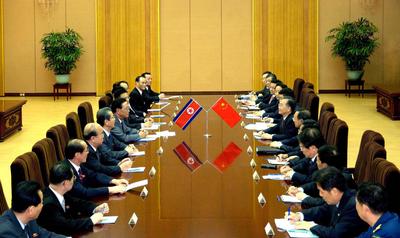On 12 February 2013, Pyongyang went ahead with another nuclear test — against Beijing’s advice. This has led to significant changes in the Chinese debate over how to deal with the North Korean problem.
Beijing’s policy on North Korea has always been a balance between two objectives: stability and denuclearisation. Beijing desires stability in the Korean Peninsula because it believes that a stable and friendly North Korea is in China’s long-term strategic interest. It also believes, as a practical matter, that conflict in the Korean Peninsula would not only jeopardise China’s security but also bring with it a serious refugee problem.
But similarly, China does not want a nuclear-armed North Korea, also for strategic and practical reasons. Beijing believes that Pyongyang’s efforts to develop nuclear weapons would seriously undermine the nuclear non-proliferation regime in which China is strategically interested. And China has four practical reasons to work against a nuclear North Korea: first, Pyongyang’s efforts to develop nuclear weapons would prompt China’s neighbours, especially Japan and South Korea, to do the same and increase the chance of a nuclear war along Chinese border; second, Pyongyang’s efforts to develop nuclear weapons threatens to invite a pre-emptive strike from the United States; third given Pyongyang’s poor economic performance North Korea may be tempted to sell nuclear technologies and even nuclear weapons to recover some of the cost for development — the likely candidate buyers are international terrorist groups; and fourth, even if Pyongyang does not sell nuclear technologies or weapons to terrorists, they could fall into the wrong hands if Pyongyang collapses — which is not unfeasible given the mounting political and economic problems in North Korea.
In the light of these concerns, people in Beijing have been divided as to which objective to emphasise: stability or denuclearisation? Stability requires opposition to pre-emptive attacks against North Korea and resistance to tough international sanctions that threaten to bring down the North Korean government. Denuclearisation demands the endorsement of tougher sanctions to bring Pyongyang to give up developing nuclear weapons. So far, Beijing has prioritised stability over denuclearisation, but it appears that a shift is taking place as a result of Pyongyang’s recent test of nuclear weapons.
Beijing’s reaction was strong and swift. Immediately after the test, Chinese Foreign Minister Yang Jiechi summoned the North Korean Ambassador and ‘lodged a solemn representation’ over the test. He said that China ‘was strongly dissatisfied with and firmly opposed to’ the test. Chinese media carried editorials and essays expressing frustration and opposition to the North Korean action — even the Global Times, known for its critical stance against the west, issued an editorial arguing that China should reduce aid to North Korea and that if Pyongyang is not happy, so be it. Pyongyang’s ill-conceived criticism of China’s agreement to an UN resolution condemning the test further fuelled Chinese frustration with Pyongyang. It is against this background that the debate in China has changed from one about whether China should work with other countries to impose sanctions against North Korea to one about the kind of sanctions China should endorse.
This is not the first time that Beijing has supported international sanctions against North Korea. In October 2006, in reaction to North Korea’s nuclear test, China endorsed a UN resolution imposing sanctions while trying to limit their severity. Given the rhetoric, it appears that Beijing is likely to be supportive of tougher sanctions this time.
But the fact that Beijing is in favour of tougher sanctions against North Korea does not mean it will support anything put forward in the Security Council. Beijing will have three issues to consider before supporting sanctions. First, Beijing must balance its need to express its frustration with Pyongyang and opposition to the nuclear test with a desire not to seriously jeopardise the China–DPRK relationship. Second, China wants tough enough sanctions to discourage North Korea, but would like to reduce any harm to the livelihood of the North Korean people. Finally, China hopes that the sanctions adopted will be sufficient to encourage North Korea to come back to the negotiation table and discuss denuclearisation without causing serious instability in North Korea. The last thing Beijing wants is the collapse of the North Korean regime. It is likely that Beijing will work for a set of sanctions against North Korea that is tougher than before but not as tough as some people expect. That is to say, Beijing is unlikely to support sanctions that amount to a complete embargo against North Korea. Whether Beijing will go further in the future rests entirely in the hands of Pyongyang.
Jia Qingguo is Professor and Associate Dean of the School of International Studies, Peking University


I personally think that warheads should be put into storage and to be never taken out thereafter. What’s the use in big guns and wars? I’m all for China joining forces to get the sanctions out. At the end of the day, the only thing that can come from all the peacocking of nuclear firepower is loss of valuable time trying to resolve the issues at hand. Nobody wants war and loss of life anywhere.